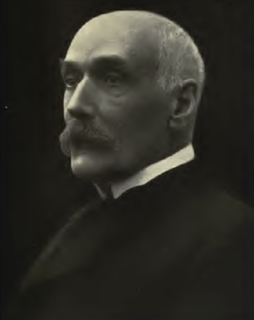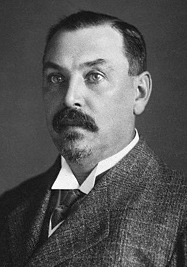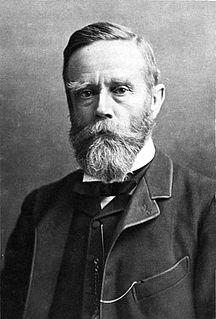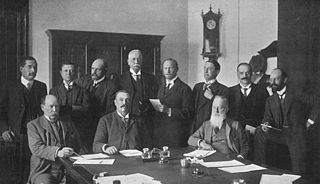Related Research Articles
The Second Anglo-Boer War had no sooner commenced with the ultimatum of the Transvaal Republic on 9 October 1899, than Mr Schreiner found himself called upon to deal with the conduct of Cape rebels. The rebels joined the invading forces of President Steyn, whose false assurances Mr Schreiner had offered to an indignant House of Assembly only a few weeks before. The war on the part of the Republics was evidently not to be merely one of self-defence. It was one of aggression and aggrandisement. Mr Schreiner ultimately addressed, as prime minister, a sharp remonstrance to President Steyn for allowing his burghers to invade the colony. He also co-operated with Sir Alfred Milner, and used his influence to restrain the Bond.

The Progressive Party was a liberal party in South Africa which, during apartheid, was considered the left wing of the all-white parliament. The party represented the legal opposition to apartheid within South Africa's white minority. It opposed the ruling National Party's policies of apartheid, and championed the Rule of Law. For 13 years its only member of parliament was Helen Suzman. It was later renamed the Progressive Reform Party in 1975, and then Progressive Federal Party in 1977. The modern Democratic Alliance considers the party to be its earliest predecessor.

John Xavier Merriman was the last prime minister of the Cape Colony before the formation of the Union of South Africa in 1910.
The Unionist Party was a pre-apartheid South African political party, which contested elections to the Union of South Africa parliament from the 1910 South African general election until its merger into the South African Party just before the 1921 South African general election.

General elections were held in South Africa on 15 September 1910 to elect the 121 members of the House of Assembly. They were the first general election after the Union of South Africa was created on 31 May 1910.

The Cape Argus is a daily newspaper co-founded in 1857 by Saul Solomon and published by Sekunjalo in Cape Town, South Africa. It is commonly referred to as The Argus.

The South Africa Act 1909 was an Act of the British Parliament which created the Union of South Africa from the British colonies of the Cape of Good Hope, Natal, Orange River Colony, and Transvaal. The Act also made provisions for admitting Rhodesia as a fifth province of the Union in the future, but Rhodesian colonists rejected this option in a referendum held in 1922. The South Africa Act was the third major piece of legislation passed by the Parliament of the United Kingdom with the intent of uniting various British colonies and granting them some degree of autonomy. Earlier, the British North America Act, 1867 had united three colonies and the Commonwealth of Australia Constitution Act, 1900 had united the Australian colonies.

Sir John Gordon Sprigg, was an English-born colonial administrator, politician and four-time prime minister of the Cape Colony.

Sir Thomas Charles Scanlen was a politician and administrator of the Cape Colony.
Although the Democratic Alliance of South Africa in its present form is fairly new, its roots can be traced far back in South African political history, through a complex sequence of splits and mergers.
The Afrikaner Bond was founded as an anti-Imperialist political party in 19th century southern Africa. While its origins were largely in the Orange Free State, it came to have a significant presence across the region, and especially in the Cape Colony and the Transvaal.

The South African Party was a political party in Cape Colony.

Jacobus Wilhelmus ("J.W.") Sauer, was a prominent liberal politician of the Cape Colony. He served as Minister in multiple Cape governments, and was influential in several unsuccessful attempts to enshrine equal political rights for black South Africans in the constitution of the Union of South Africa. He was also a strong early supporter of women's rights and suffrage.

The Cape Qualified Franchise was the system of non-racial franchise that was adhered to in the Cape Colony, and in the Cape Province in the early years of the Union of South Africa. Qualifications for the right to vote at parliamentary elections were applied equally to all men, regardless of race.

Sir William Thomas Smartt was a South African politician, and founder and leader of the Unionist Party.

The Parliament of the Cape of Good Hope functioned as the legislature of the Cape Colony, from its founding in 1853, until the creation of the Union of South Africa in 1910, when it was dissolved and the Parliament of South Africa was established. It consisted of the House of Assembly and the legislative council.

Elections for the House of Assembly were held in Cape Colony in 1904. The election was a victory for the Progressives under Leander Starr Jameson, who had first achieved prominence for his role in the ill-fated Jameson Raid.

Sir James Rose Innes was the Chief Justice of South Africa from 1914 to 1927 and, in the view of many, its greatest ever judge. Before becoming a judge he was a member of the Cape Parliament, the Cape Colony's Attorney-General, and a prominent critic of Cecil John Rhodes. His maternal grandson was Helmuth James Graf von Moltke, a prominent opponent of the Third Reich.

Sir James Sivewright K.C.M.G. (1848–1916) was a businessman and politician of the Cape Colony, South Africa. He was a strong political ally of Cecil Rhodes and, as his cabinet minister, was implicated in the "Logan" corruption scandal that led to the fall of the first Rhodes government.

The National Convention, also known as the Convention on the Closer Union of South Africa or the Closer Union Convention, was a constitutional convention held between 1908 and 1909 in Durban, Cape Town and Bloemfontein. The convention led to the adoption of the South Africa Act by the British Parliament and thus to the creation of the Union of South Africa. The four colonies of the area that would become South Africa - the Cape Colony, Natal Colony, the Orange River Colony and the Transvaal Colony - were represented at the convention, along with a delegation from Rhodesia. There were 33 delegates in total, with the Cape being represented by 12, the Transvaal eight, the Orange River five, Natal five, and Rhodesia three. The convention was held behind closed doors, in the fear that a public affair would lead delegates to refuse compromising on contentious areas of disagreement. All the delegates were white men, a third of them were farmers, ten were lawyers, and some were academics. Two-thirds had fought on either side of the Second Boer War.
References
- ↑ "Archived copy" (PDF). Archived from the original (PDF) on 2013-09-03. Retrieved 2012-05-23.CS1 maint: archived copy as title (link)
